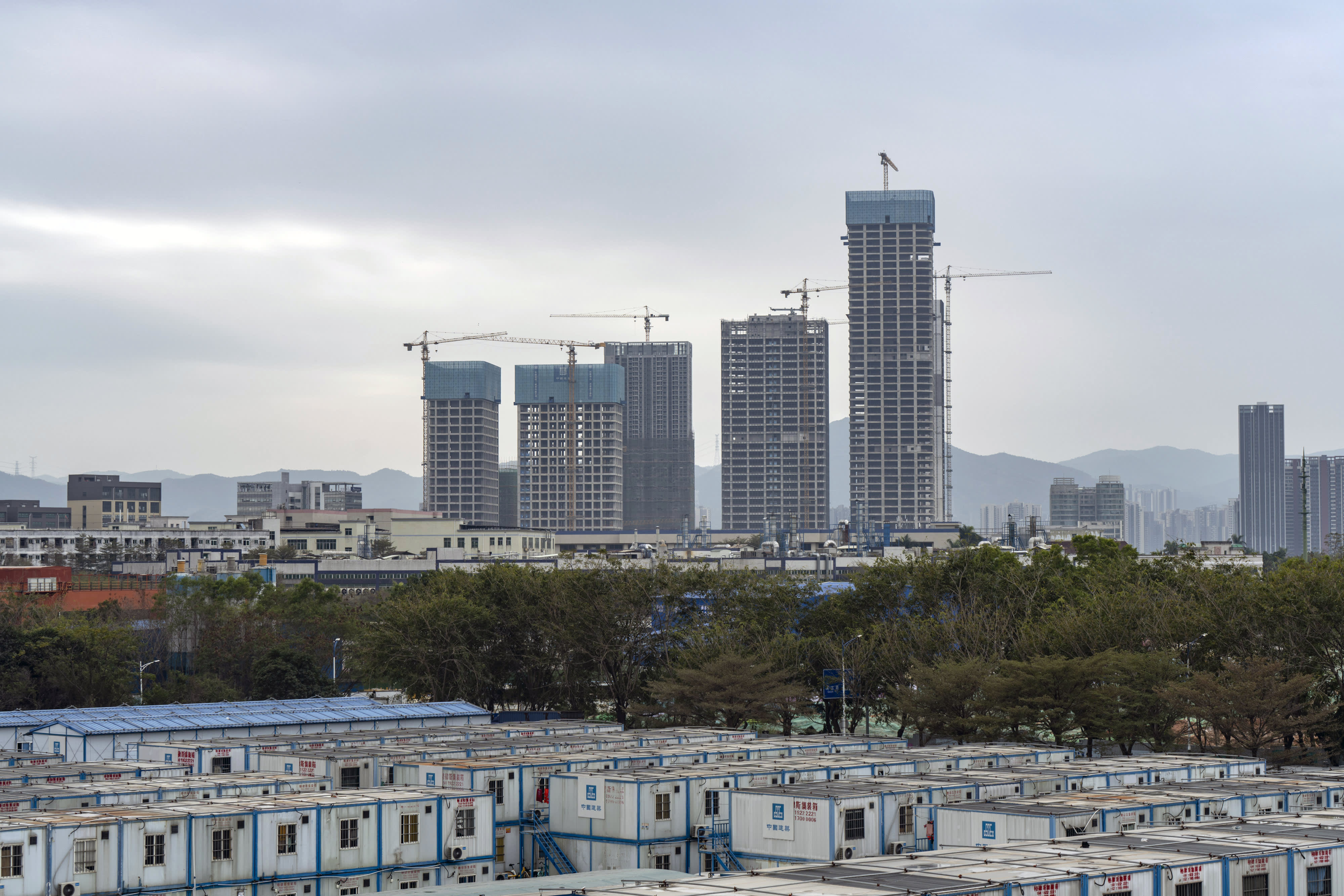
China's real estate sector has employed many construction workers, who usually live in temporary housing nearby.
Bloomberg | Bloomberg | Getty Images
BEIJING – Chinese authorities have indicated that China's troubled property developers will not get a major bailout, warning that those who “harm the interests of the masses” will be punished.
“For real estate companies that suffer serious insolvency and have lost the ability to operate, those that should go bankrupt should go bankrupt, or be restructured, in accordance with the law and market principles,” said Ni Hong, Minister of Housing, Urban and Rural Affairs. Development said in a press conference on Saturday.
He added, “Those who commit acts that harm the interests of the masses will be firmly investigated and punished in accordance with the law.” “They will be forced to pay the due price.”
That's according to a CNBC translation of his Mandarin remarks published in an official transcript of the news conference, which was held in conjunction with China's annual parliamentary meetings.
Nee's comments come as major property developers, from Evergrande to Country Garden, have defaulted on their debts, while a decline in new home sales has put future business into question.
In 2020, Beijing cracked down on developers' heavy reliance on debt for growth in an attempt to clamp down on speculation in the real estate market. But many developers soon ran out of money to finish building the apartments, which are usually sold to homebuyers in China before they are completed. Some buyers have stopped paying their mortgages under the boycott.
The authorities have since announced measures to provide some developers with financing. But the national position on reducing the role of real estate in the economy has not changed.
This year's annual government meeting stressed the country's focus on investing in and building advanced manufacturing capabilities. In contrast, the leadership did not mention the huge real estate sector much.
Real estate was barely mentioned during a news conference focused on the economy last week, while Ni spoke during a meeting focused on “people's livelihoods.”
Ni said the authorities will encourage housing sales and development of affordable housing, while emphasizing the need to consider the long term.
Changes in the real estate sector in the near term will have a significant impact on the Chinese economy in general.
Real estate once represented about 25% of China's GDP, if we include related sectors such as construction. UBS analysts estimated late last year that real estate now represents about 22% of the economy.
Last week, Premier Li Qiang said in his government work report that next year China “will move faster to promote a new real estate development model.”
“We will expand the construction and supply of government-subsidized housing and improve basic commodity housing systems to meet people’s basic need for a home to live in and their various demands for better housing,” an English-language version of the report said. He said.

“Web maven. Infuriatingly humble beer geek. Bacon fanatic. Typical creator. Music expert.”





More Stories
Dow Jones Futures: Microsoft, MetaEngs Outperform; Robinhood Dives, Cryptocurrency Plays Slip
Strategist explains why investors should buy Mag 7 ‘now’
Everyone gave Reddit an upvote